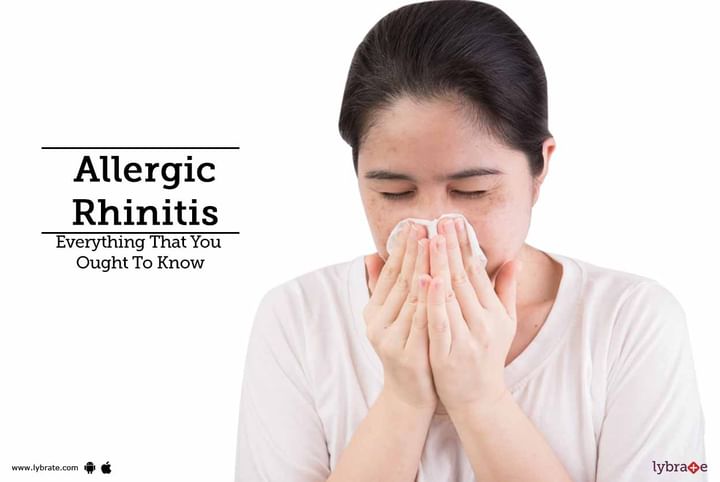Allergic Rhinitis - Everything That You Ought To Know
An estimated 10 to 30 percent of people across the world suffer from Allergic rhinitis. Allergic rhinitis, more commonly known as hay fever, is a condition wherein the immune system overly responds to allergens resulting in inflammation in the nose. As you might be aware, an allergen is typically a harmless substance present in the surroundings causing an uncomfortable allergic reaction.
Following is a detailed account of the condition.
Symptoms-
Some of the most common symptoms of allergic rhinitis include,
- Sneezing
- Stuffy and runny nose
- Persistent coughing
- Itchy and watery eyes
- Sore throat
- Frequent headaches
- Dark circles under the eyes
- And, symptoms associated with eczema
Further, it also results in hives and excessive fatigue. An allergic person is likely to feel many of these symptoms within a few minutes of coming into contact with an allergen. Some symptoms, such as recurrent fatigue and headaches can only happen when there is long-term exposure to allergens. There are some people, who rarely undergo any signs, and this happens when a person is exposed to the allergens in massive quantities.
Causes of Allergic Rhinitis:
When the body comes in contact with the allergen, it triggers the release of histamine which is a natural chemical that defends the body from the allergen. This histamine can lead to allergic rhinitis and the associated symptoms which may range from a blocked or a runny nose to itchy eyes. Common allergens include pollen, dust mites, animal dander, grass pollen, and mold.
There are two variants of allergic rhinitis- seasonal and perennial.
- Seasonal- Seasonal allergies usually occur during specific seasons owing to the response to outdoor allergens. For example, during a specific time in the year such as spring, the pollen can cause allergies in a person. Also, when trees and flowers release pollens during the fall and summer, seasonal allergic rhinitis can be seen on the rise.
- Perennial- On the other hand, perennial allergens tend to linger all-round the year, and pet dander, mold or dust mites come under perennial allergic rhinitis causing allergens.
Diagnosing and treating allergic rhinitis-
When a person is suffering from minor allergies, a physical exam may be required. But a doctor may also perform some tests for identifying the best course of treatment as well as prevention plan for a particular patient. A skin prick test is one of the best ways to determine whether you have allergic rhinitis.
This health issue can be treated in a variety of ways which range from home remedies to medications to alternative therapies. Common medications include antihistamines, decongestants and nasal sprays and eye drops.
Staying away from a known allergen is the best possible way to prevent allergic rhinitis. When diagnosed, it is necessary to consult your doctor as the condition may sometimes lead to complications.



+1.svg)
